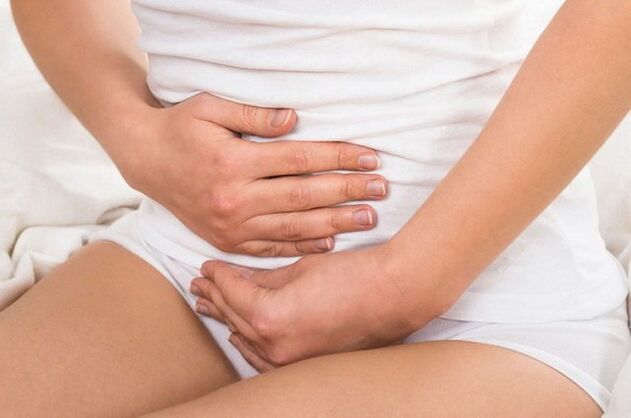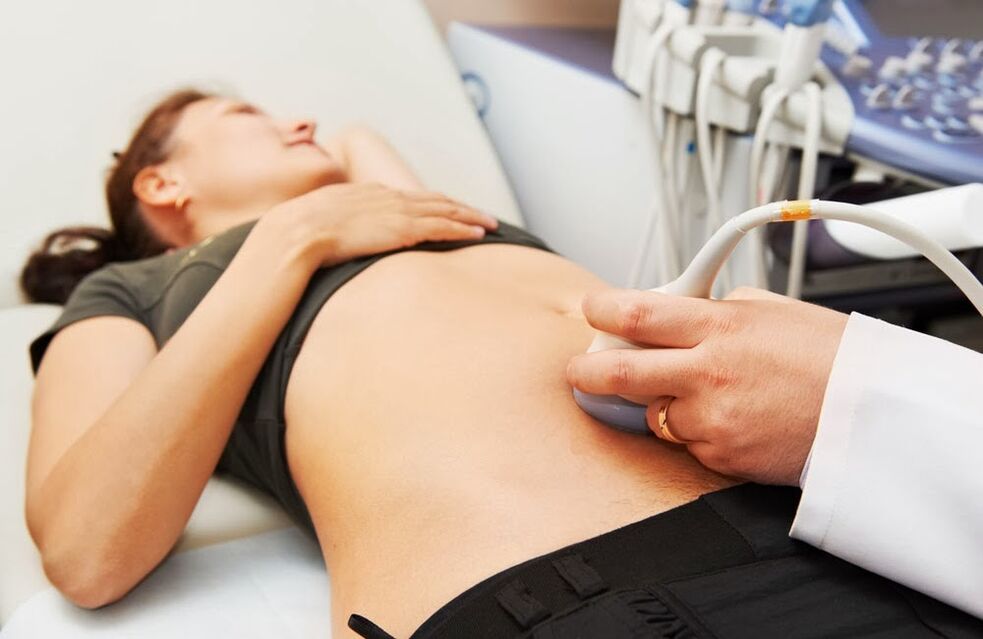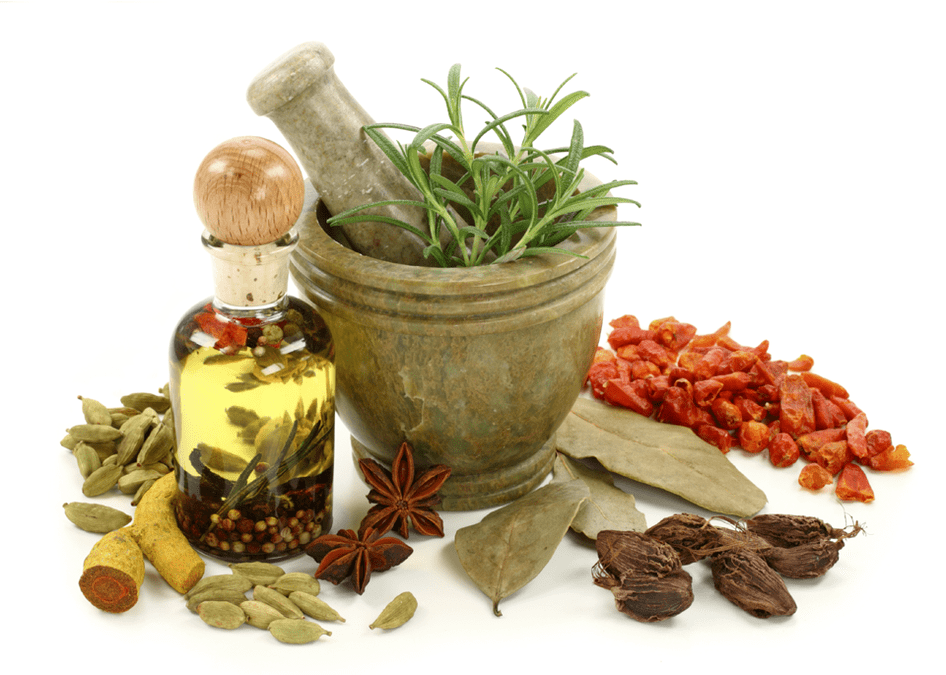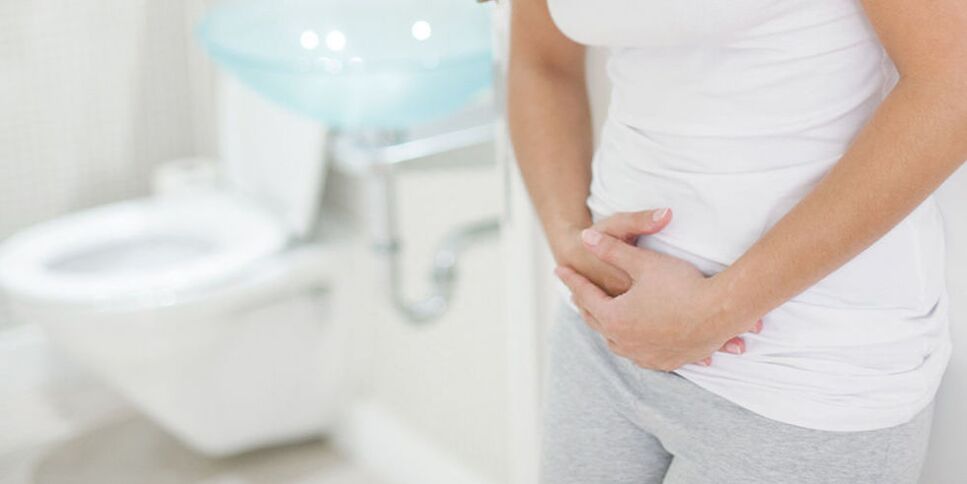Cystitis is called inflammation of the bladder. Most often, this problem understands women as they are shorter and wider than men. This circumstance makes the infection penetrate here more and more quickly. In total, at different periods of life, cystitis is patients with 20 to 40 % of the planet women.

Cystitis is a disease inherent in all ages. The following causes it mainly:
The main cause of this disease is hypothermia. The most dangerous freezing of the legs and pelvis. Therefore, you cannot sit on cold surfaces, wear thin silk linen in the cold season, as well as too light shoes.
A risk factor is also a sedentary job that causes blood stagnation in the veins of the pelvic areas. You cannot sit continuously in one place for 4-5 hours. If your duties require this, you should try to get up more often and take 15-minute breaks.
A special category of reasons capable of causing cystitis are violations of hygiene rules. You run the risk of gaining this disease if:
It is necessary to release the bladder at least 5 times a day, otherwise the infection entering the bladder is facilitated due to stagnation or decomposition of urine.

Depending on the nature of the disease, cystitis is divided into acute and chronic. The acute form occurs in the presence of pronounced symptoms and occurs after a provocative sudden factor.
Chronic cystitis is characterized by the lower severity of manifestations and is most often caused by other diseases.
Depending on the cause of the pathology, cystitis is divided into primary and secondary, as well as bacterial and not -bacterial.
Bacterial inflammation of this organ is caused by infections of different origin - streptococci, enterococci, gonococci and more. At the same time, the infection can be hematogenous, lymphogenic, descending or ascending.
Non -bacterial cystitis develops with irritation of the walls with medicinal, chemical or other substances. Distinguish between thermal, toxic, radiation, allergic, alimentary cystitis.
If the primary disease is characterized by damage to the bladder right from any of these factors, then secondary cystitis develops as a result of other diseases of these or nearby organs. For example, it usually accompanies urolithiasis, prostate adenoma, urethral stricture, etc.
The symptoms of this disease depend on its form. If in acute cases there is a bright clinical picture with strong reins with rapids up to several times an hour of urination, then during the chronic course during remission, the signs may be absolutely absent.
The most characteristic symptoms of the acute form of the disease include:
In some patients in the urine there is also an impurity of blood, there is a constant feeling of incomplete emptying of the bladder. In some patients, at the end of urination, they are so strong that they emit to the rectum.
If such symptoms occur in a man, you should contact a urologist immediately, as male cystitis is almost always secondary. Their main cause is the most often prostate diseases, urolithiasis, diabetes mellitus. Symptoms very similar to cystica occur with urethritis that is not nani.
Sometimes an asymptomatic course of cystitis is possible. In such cases, the diagnosis is found to be accidentally when performing urine analysis for another reason.
In the presence of a typical clinical picture in favor of acute cystitis, there is a rapid improvement in the condition under the influence of antibacterial agents. In addition, laboratory tests and ultrasound data are taken into account.
Following the disappearance of acute phenomena, a cystoscopy is performed to clarify the diagnosis, which is a examination of the internal condition of the bladder.
For women, a gynecological examination is very important in which concomitant female diseases that contribute to the development of cystica can be identified.

Thus, a complete examination of chronic cystitis consists of:General urine analysis;
Cystitis should not be confused with urethritis, which consists in inflammation of the urethra and manifests only through reins, burning and pain during urination. In many cases, these diseases are accompanied.
If the inflammatory process does not respond to treatment and the process becomes a long -term nature, you should understand in detail the cause of this situation. In this case, in order to prescribe proper treatment, it is necessary to differentiate cystitis with other diseases, such as prostatitis, bladder cancer, tuberculosis.
When diagnosed, the cystic should be taken into account and the cystic is not characterized by an increase in temperature above 37, 5 degrees. If the patient has such a symptom, he or she needs to consult a urologist to rule out kidney disease.
To get rid of the outbreak or exacerbation of this extremely unpleasant illness, you must follow the following recommendations:
In acute cystitis, antispasmodics, antibacterial drugs, herbs with diuretic effects are prescribed. In case of pronounced pain, medicines are recommended that relieve the spasm of the bladder muscles - nospo, drotaverin, papaverine. They can be used both in the form of tablets and in the form of candles. Helps eliminate the crib laid on the lower abdomen.
Casted herbs are widely used for cystitis, leaf leaf, kidney tea. Blueberry, lingonbury and blueberries are very useful in such a situation. There are ready -made phytopreparations for such cases. The use of finished medicines has a more anticipated effect in the treatment of cystitis. But the use of ready -made pharmacological agents does not cancel the intake of abundant warm drink.
Warm baths with herbs or washing the external genitals with hot water with a solution of soda will help relieve the condition after painful urination.
The diet for acute cystitis should exclude marinades, spices, salting. Dairy products, fruits, especially watermelon will be useful.
The chronic course of the disease prescribed procedures aimed at restoring the leakage of urine. These include, for example, the treatment of prostate adenoma, elimination of narrowing of the urethra. Mandatory detection and elimination of foci of infection in the body are performed. In chronic forms of cystitis, antibacterial treatment is performed only after appropriate laboratory tests - urine sowing, identifying the pathogen and its sensitivity to antibiotics.

People have many remedies that have a positive effect on urine diseases, including cystitis. The most effective of these can be called the following:
Not all patients are allowed thermal procedures in the pelvis. For example, they are contraindicated in women with fibroids or fibromyoma. In such cases, the use of diuretic herbs, which should be performed for 1, 5-2 months. With phytotherapy to avoid relapse, it is important to take repeated courses. So, after the acute hearth of the disease, you should repeat the treatment after 2-3 months and in the treatment of chronic forms-after 3-5 months.
The good effect on cystica has such an herbal collection: in equal proportions the grass of parsley, thyme, the case of St. John, Dill and Knorbus are mixed in equal proportions. 1 teaspoon of the mixture is poured with 1 glass of boiling water and insists. You should drink this infusion half a glass three times a day for 20 days. 3 such courses should be held with a 10-day rest between them. The relief happens in the first course and the full cycle helps to get rid of old cystitis.
A rapid improvement in the condition can be obtained if a handful of dried corn flow flowers are boiled with 300 g of boiling water and insists for 30 minutes. Half of the portion is drunk on small sips in the evening, the second half in the morning.
Acute manifestations of cystitis are quickly passed if you eat 0, 5-1 l linggons in one dose. But this does not mean that more treatment must be completely stopped on this issue.
The effect of folk methods will be more stable if used in combination with diet and medication treatment.
With appropriate therapy, the symptoms disappear after 5-10 days. But often, after home or quickly performed, the signs of the disease disappear only for a while. The real cause of the disease remains in the body and is immediately felt with the smallest hypothermia. In this case, they say that cystitis has become a chronic form.
The chronic type of disease is particularly dangerous for girls as it can lead to scars on the back wall of the urethra and reduce it in volume. At the same time, a vicious circle occurs, which is to constantly feed each other foci of infection.
In addition, if cystitis is not sufficient, bladder infection can penetrate the kidneys, resulting in a more serious disease - pyelonephritis. At the same time, pain in the lumbar region, fever and swelling are added to frequent urination.
A serious complication of the disease, which occurs in the absence of proper treatment, is the development of interstitial cystitis. In this case, the infection penetrates not only the mucous membrane but also the submucosal layer, as well as the muscular wall of the organ. Its tissues are marked and deformed, leading to wrinkling the bladder and the loss of its volume. The only way to save the patient is to surgery to complete the organ with the plastic of the new, consisting of colon tissues.
This disease, which already torments mainly women, often occurs during pregnancy. Every tenth woman learns about the existence of this disease in the difficult period of carrying a child.

Its appearance in the early stages is explained by changes in the hormonal background, as well as the phenomenon of the immunosuppression of the pregnant woman, ie inhibition of immunity. It is the weakened immunity that allows microorganisms to multiply freely and cause inflammation of the bladder mucosa. Therefore, the smallest hypothermia, violation of hygiene rules and even acute climate change can cause acute cystitis in all its glory in her expecting mother.
The onset of this disease is also facilitated by the ever -increasing uterus, which presses the bladder and leads to impaired urine leakage, which causes the active spread of pathogenic microbes.
The difficulty in treating cystitis during pregnancy is that the medicines taken can negatively affect the body of the unborn child. But at the same time, treatment should be performed immediately as the infection can spread to the kidneys. Therefore, you should take such medicines that will act specifically in the bladder.
To prevent the disease, it is sufficient to follow some simple recommendations:
With a sitting lifestyle every 20-30 minutes you have to get up and knead and, of course, you should not be lazy to empty the bladder on time.
A good prevention of cystic is the daily drinking of a glass of cranberry juice or taking cranberries in any other form. This natural remedy has a diuretic and disinfectant and, as it was, interferes with the adhesion of infection to the walls of the bladder.




























